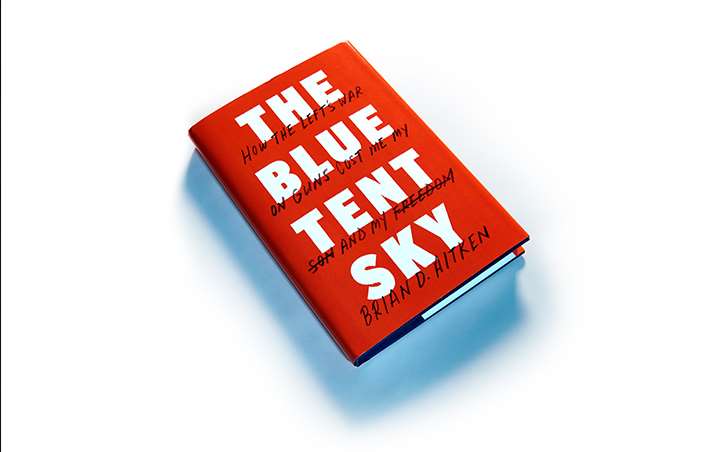
Greg Revell is a prime example. Revell was traveling through New Jersey when he and his legally checked firearm were deplaned due to a delay. The next day when he rechecked his luggage, he was arrested and jailed for having firearms in the state without a license. It took days for him to get out of jail, months to have the charges dropped and years before he got his guns back.
Then former police officer Dustin Reininger was arrested and his guns impounded when officers assumed a case in the back of his car held firearms and used the assumption as justification to search. He was sentenced to five years in prison.
More recently, 27-year-old single mother Shaneen Allen was arrested after a traffic stop in which she voluntarily disclosed her handgun, which she is licensed to carry in Pennsylvania. The state never claimed that Allen intended to use the gun unlawfully or offensively, but the district attorney initially refused to show leniency and pressed for years in prison. After a public outcry, the attorney general issued guidelines clarifying “mandatory” sentencing guidelines in September 2014, meaning that Allen won’t face prison time. The ordeal also prompted the introduction of Shaneen’s Law, which would give judges a safety valve to depart from mandatory sentences.
And then there’s Brian Aitken, a public relations executive who moved to New Jersey to stay with his parents for a short time after a bitter divorce and custody dispute. Following a desperate phone conversation with Brian after he moved out of her house, his mother feared for her son’s safety and called 9-1-1. Ultimately she hung up before connecting, but police responded anyway, ordering Aitken to return to his parents’ home.
Upon return, his car was searched, handguns and ammunition from his move were confiscated, and Aitken was arrested and eventually sentenced to seven years in prison. Although his sentence was ultimately commuted to time served, by Gov. Chris Christie, the felony label still haunts his record.
Aitken’s new book, “The Blue Tent Sky” (Beard Face Books), is his gripping, first-person account of the case, presented in far more detail than any news article to date. Picking up just after the seven-year sentence pronouncement,“The Blue Tent Sky” takes the reader back to the beginning through flashbacks, giving us a riveting and intimate perspective from the 50-yard line of Aitken’s courtroom drama.
Sometimes broken, sometimes hopeful, Brian’s narrative is clear and compelling, carrying readers through the process of a sudden arrest, a desperate court battle, a wilting defeat, a despairing four months in prison and the ultimate resurgence of hope for release. The work is colored—but not tainted—by frustration as we watch Brian face the judicial odds stacked against him, whether in the push for justice and common sense to prevail over New Jersey’s anti-gun vendetta, or in the desperate attempts to see his young son.
Recently, America’s 1st Freedom had the privilege of speaking with Brian about the book and his story.
AFF: Thanks for talking with us, Brian. Let’s start by asking what made you want to write this book?
Aitken: People have been telling me for years that I should sit down and write my story to share with everybody. But really my motivation was to write down everything that had happened so that way, years from now when my son is finally able to have a relationship with me, he’ll know the truth why I wasn’t able to see him and why I wasn’t around when he was growing up.
AFF: How did you find the writing experience?
Aitken: It was a nightmare [laugh]! I was working full-time in Austin and thought that because there was so much information out there I might be able to hire a ghostwriter. After I saw the first couple of chapters the ghostwriter had written, I realized that was a horrible mistake. So I fired the ghostwriter and hired a writing coach, who helped me kind of outline what the entire story arc was going to be. Then we went chapter by chapter. After that, I rewrote the entire book sentence-by-sentence, word-by-word. It was really difficult. I’m not, by any stretch of the imagination, a writer.
AFF: You wrote that on the day you were sentenced, you knew the judge didn’t think you were guilty. Can you talk a bit more about that?
Aitken: Well, the judge said that he didn’t think I was a criminal and that I wouldn’t ever commit any sort of crime. His motivation was, he told us—the primary aggravating factor—was that he wanted there to be a general deterrence of the public so that other people wouldn’t move to the state of New Jersey with firearms. He said he would have given a minimal sentence except that there’s a strong need to deter this type of crime. And the sentencing judge wasn’t even the same judge who presided over my case.
AFF: The nra has obviously played a big role in helping publicize your case. How and when did you first become involved with them?
Aitken: I remember growing up and going over to my grandfather’s house and seeing the nra magazines on his coffee table and the nra sticker on his screen door. So our family has deep roots with the nra. I first got involved—I got my membership when I was about 20. In regards to the case, they got involved immediately after I went on Judge Napolitano’s show. I was desperate, out of money, out of a lawyer and didn’t know who to turn to or what to do. Within days, I was being represented by Evan Nappen, who had written four or five books on New Jersey gun law. And he had told us,“Don’t worry about it.We know a lot of people at the NRA. We’re going to ask them if they’ll step in and take care of the legal expenses.” And they did. If they hadn’t, I don’t know where I would be or what I’d be doing right now, but I’m pretty sure I’d be behind bars, because I have no idea how an individual takes on an entity like the entire New Jersey state judicial system, with all the resources at its disposal in order to get a conviction. It’s very difficult for average, ordinary people to be able to defend themselves.
AFF: What do you think is the solution for New Jersey’s uneven gun laws?
Aitken: I think one of the big solutions for people like Shaneen Allen and Guy Ackerman would be to have national reciprocity. For myself specifically, I didn’t have a carry permit from the state of Colorado where I was moving from, so that wouldn’t really have helped me. And even at the most technical level, what I was doing was obeying the law—doing exactly what they told me to do. So it’s not so much that laws need to be changed, although they do. But we have laws on the books that prosecutors and police officers and judges refuse to respect or acknowledge. And in my case, a judge refused to let the jury know what the law was to protect my Second Amendment rights. I think there needs to be judicial accountability. Somebody needs to be watching the judges and holding them accountable for what happened. And luckily, Gov. Christie was able to do that with the judge in my case. But it shouldn’t be once every seven years that we look at these judges and whether or not they should be appointed to a life term.
AFF: You’re on the inside, and suddenly people start rooting for you by the thousands. Soldiers wrote to you from war zones. Tell us how that felt.
Aitken: Surreal. It was weird. Because for a long time, even people in my family had so much trust and faith in the police officers and judicial system that I remember them saying,“They wouldn’t have arrested you if you hadn’t done something wrong.” Within my small circle it was very difficult to try and convince my friends and family members who had been long-set in their ways of trusting the government and blindly trusting these other individuals, and telling them that no, I didn’t do anything wrong, and this was a real problem. And then all of a sudden thousands of people all around the country were already awakened to this idea. For the first time, I felt like I was surrounded by people who actually knew that I was innocent, and that things could be OK.
AFF: How has your life gotten on track since getting out? How has it changed?
Aitken: Immediately after I was let out of prison, Larry Reid, who was president of the Foundation for Economic Education, brought me on board and gave me a job as the director of marketing. He used to tell donors that we don’t leave one of our own wounded on the battlefield. Larry was really a big help for me getting settled back into the real world. But life has changed a lot. I still can’t pass a background check, so that affects any time I want to move into a new house or apartment. I have a difficult time passing credit checks because a felony record is a red flag for a lot of things. As an entrepreneur and businessman, it’s very difficult. I flew out to San Francisco for work, and I’m in a very liberal state working with a lot of very liberal people, who after I would talk to them about what their campaigns or pr would be, they would close up their laptop, and say, “So! You’re the gun guy.” It follows me everywhere I go.
AFF: What do you tell them?
Aitken: I tell them that I am, and if they have any questions, typically I answer them. But I try to just shrug it off and try to convince people that I’ve done nothing wrong. It feels like even though the governor has stepped in and the nra stepped in and the appellate division overturned my conviction, there’s still that stigma, you know? People still look at me and say,“That’s the guy who was convicted.” It follows me everywhere. Even when it’s time to vote, I can’t vote. When it’s time to pitch a new client or consider even looking for a new job, going through that process of having a felony conviction in my background—even if I’m the better qualified person for the job— companies aren’t exactly jumping to hire a convicted felon. Family court judges aren’t rooting for me either.
AFF: What hopes are there for seeing your son?
Aitken: I think about my son every day and about how much I want to see him and what I’d have to do in order to make that happen. And it’s overwhelming—especially because the last time I was there the judge pretty much told me he didn’t care what the governor had done and, as far as he was concerned, I was still guilty and nothing had changed. This was before the appellate court overturned my convictions. Every time that I feel like I’m in a position to start the legal process of seeing my son again, I represent myself or retain a lawyer and file the paperwork and motions to start making that happen. And I’m very quickly outspent and left worse off than I was before. So now I realize, next time I do this, I need to have an arsenal behind me with a well-funded lawyer who’s ready to fight to the end. The fact is I don’t have that right now. It’s another instance where I’m going against opponents who have limitless resources, [who] don’t have to worry about running out of money to win. And that’s something I have to worry about.
AFF: In the afterword to your book, you talk about your appeal to the Supreme Court being denied. Was that your last hope?
Aitken: Yes. For my particular case, as I understand it, that’s the last of my legal recourse.
AFF: You write about how Gov. Christie commuted your sentence, but you didn’t want a pardon. Is that still the case?
Aitken: I did ask the governor to commute my sentence so I would be able to get out of prison and fight the charges through the legal process. I felt that requesting a pardon would be asking the governor to forgive me for a crime that I didn’t commit. However, now that the appellate division has upheld what I think is an incorrect decision—the conviction of illegal possession of hollow-point ammunition, which they’ve decided it’s illegal for law-abiding gun owners to transport their legally owned hollow- point ammunition from one house to another when they’re moving—and the New Jersey Supreme Court refused to hear my case, and the Supreme Court of the United States refused to hear my case, so I am considering asking the governor to pardon that last point so I’m no longer a convicted felon so I can own firearms and pass background checks and have some part of my life back.
AFF: Until then, you have no means of Second Amendment self-defense?
Aitken: None whatsoever. All of the higher courts have refused to hear my case.
AFF: Now that you’re out of prison, do you feel forgotten?
Aitken: I’d like to be forgotten! And part of the reason I wrote this was for it to be a cathartic experience of writing down everything that happened and putting it behind me once and for all, and being able to focus on who I was before the state tried to take everything away from me. It’s taken several years, but I’m finally in the position where I’m ready to do that.
AFF: What do you want people to take away most from your book?
Aitken: I want people to realize that this can happen to literally anyone. And it does. I’ve received hundreds of emails and phone calls every single year about people who this is happening to, who are too afraid to go public because they have too much to lose. People like myself and Shaneen are at the end of the rope. We have nothing left to lose and can go public and can fight. We might not come out completely victorious, but we were able to at least get a “w” on the board. That’s not the case for a lot of people. A lot of people spend tens of thousands of dollars just so they can do a year in prison for being a gun owner—for not doing anything wrong but being a law-abiding gun owner. I want people to realize this can happen to anyone. And if there’s a problem with the laws, the laws need to be changed.
In raging debates on policy, it’s not hard to lose sight of the actual individuals affected. Aitken’s book helps put those effects into perspective, and serves as a testament to what can happen when good people come together to advocate a cause.
Classical literature is fraught with unjust imprisonments. Edmond Dantès, Jean Valjean and Alexandre Manette were fictional characters who bore witness to the injustices of their time. Here, we needn’t consult the works of fiction for illustration. We have the stories of genuine, sincere citizens unwittingly violating New Jersey’s Draconian laws and becoming the targets of an anti-gun vendetta.
They are stories that cannot—and should not—be ignored.

































